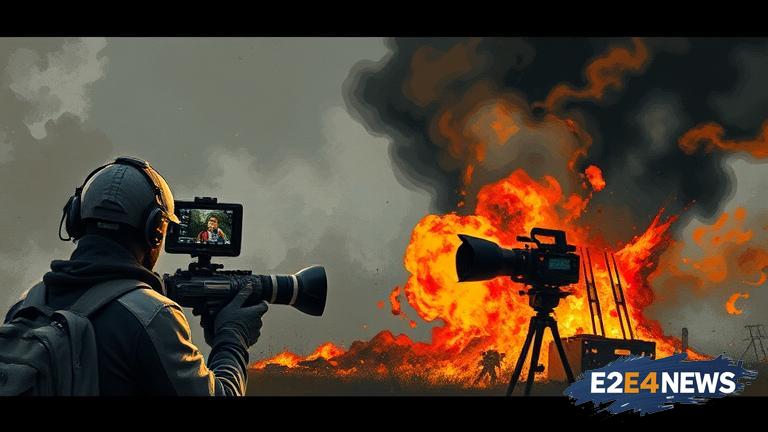The world is witnessing an unprecedented era of conflict, with wars, political unrest, and social upheaval affecting numerous countries. In the midst of this chaos, journalism has emerged as the first victim, with media freedom being severely curtailed. Journalists are facing numerous challenges, including censorship, intimidation, and violence, in their pursuit of truth and reporting. The situation is particularly dire in countries like Ukraine, Syria, and Yemen, where journalists are being targeted by warring parties. The consequences of this trend are far-reaching, with the public being denied access to accurate and unbiased information. The role of journalism in a democratic society cannot be overstated, as it provides a platform for the voices of the marginalized and holds those in power accountable. However, the ongoing conflict has created an environment where journalists are being forced to self-censor, and the media is being manipulated by those in power. The use of social media has also become a double-edged sword, with journalists being subjected to online harassment and hate speech. Furthermore, the spread of misinformation and disinformation has become a major challenge, with fake news and propaganda being used to manipulate public opinion. The international community has a responsibility to protect journalists and ensure that media freedom is upheld. This can be achieved through the implementation of robust laws and regulations that safeguard the rights of journalists. Additionally, media organizations must take steps to protect their employees, including providing them with training and resources to operate in hostile environments. The public also has a role to play, by supporting independent media outlets and promoting media literacy. In conclusion, the devastating impact of conflict on journalism is a pressing concern that requires immediate attention. The protection of media freedom is essential for the functioning of a democratic society, and it is the responsibility of all stakeholders to ensure that journalists are able to operate freely and safely. The ongoing conflict has highlighted the need for a robust and independent media, and it is essential that we take steps to protect and promote media freedom. The consequences of failing to do so will be severe, with the public being denied access to accurate and unbiased information. The situation is complex, and there are no easy solutions, but it is essential that we take a multi-faceted approach to address the challenges facing journalists. This includes providing support to independent media outlets, promoting media literacy, and advocating for the protection of journalists. The international community must also take a strong stance against those who seek to curtail media freedom, and hold them accountable for their actions. Ultimately, the protection of media freedom is a collective responsibility, and it requires the efforts of all stakeholders to ensure that journalists are able to operate freely and safely. The future of journalism depends on it, and it is essential that we take immediate action to address the challenges facing the media. The time to act is now, and we must work together to protect and promote media freedom. The consequences of failing to do so will be severe, and it is essential that we take a proactive approach to address the challenges facing journalists. The situation is dire, but it is not too late to take action. We must work together to protect media freedom and ensure that journalists are able to operate freely and safely.





